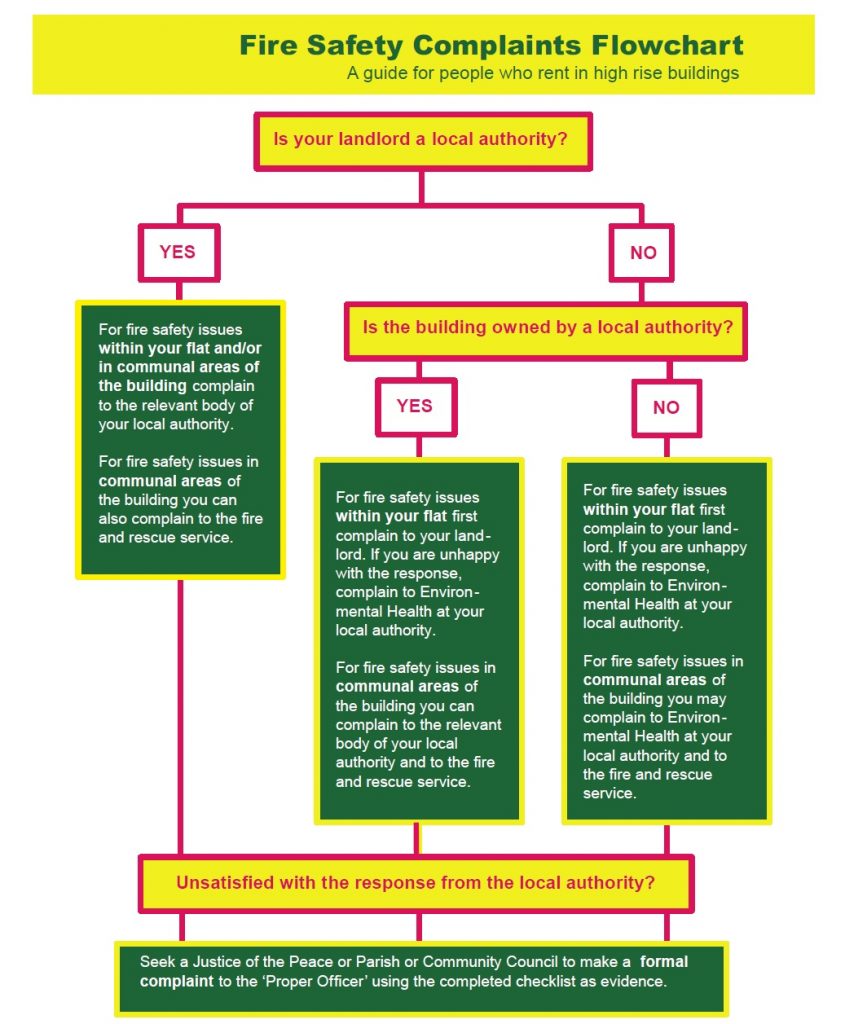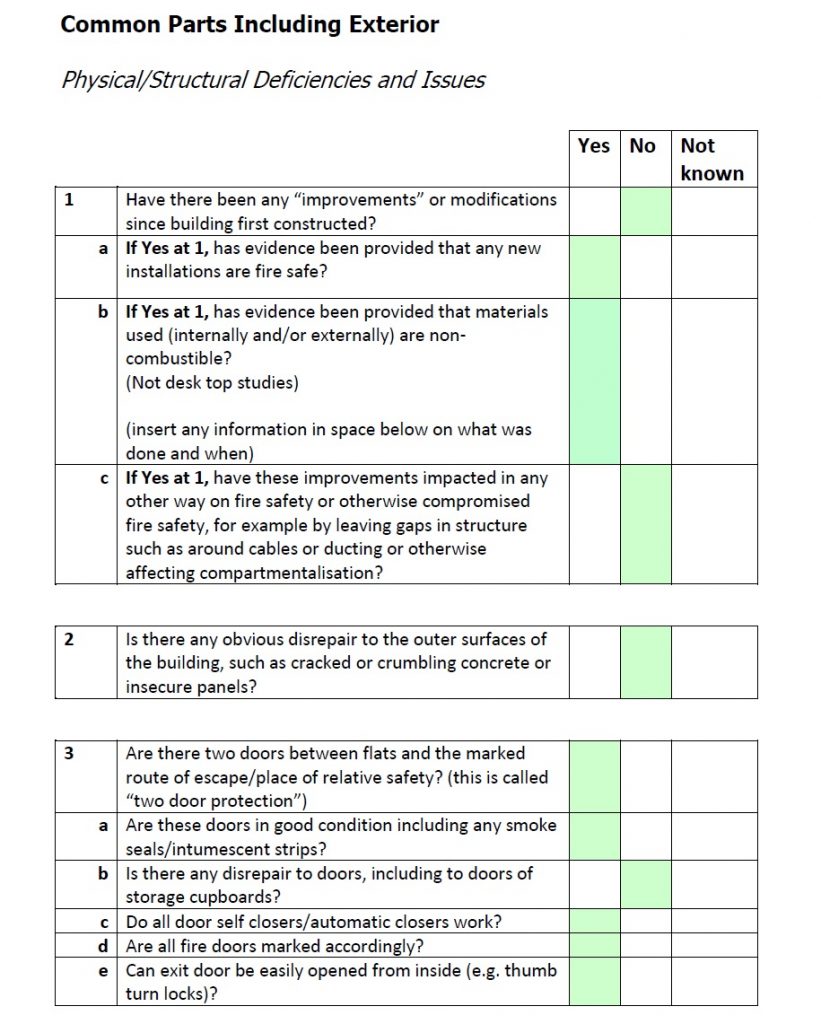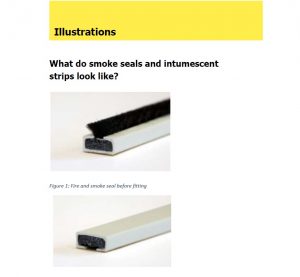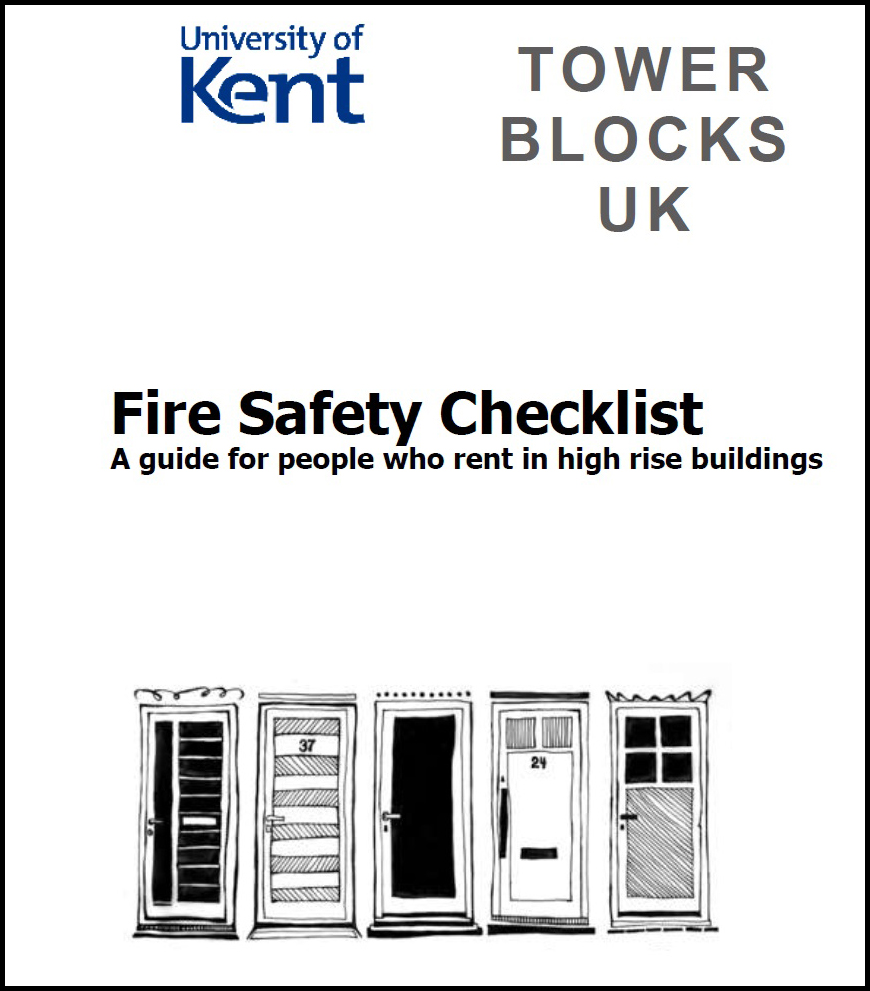Fire safety cannot wait, that is why we are launching the Fire Safety Checklist
One of the things that comes out of the terrible tragedies of the fires at Lakanal House and Grenfell Tower is the need to empower tenants and other occupiers. The Homes (Fitness for Human Habitation) Act is a very important part of that empowerment, but there is a limit to what private rights can achieve. Rights for an individual tenant to bring a claim are important, but it is also important to give tenants power to prompt the state to act on their behalf. As we have previously argued, the regulation of common parts creates problems, and when it comes to the vital matter of effective compartmentation, legal responsibility might be unclearly delineated. In addition, practical issues can cause difficulties with the enforcement of private rights, including the availability of legal aid and the potential absence of specialist housing lawyers or advisors able to act where a tenant is not able to navigate the complexity of bringing proceedings themselves.
This is why we have worked with the Tower Blocks Network and others, including independent environmental health expert Dr Stephen Battersby and fire safety expert Phil Murphy, to develop the Fire Safety Checklist.
The checklist is designed to help tower block residents identify and highlight fire safety issues in their buildings and/or individual flats, and to guide them on what might be done about it. It is explicitly designed for tenants, whether their landlord is a local authority or not, and includes a flowchart which helps residents work out routes to resolve their problem.

It can be used to gather information, and when completed, tenants can use it to support a request for an assessment under the Housing Health and Safety Rating System (known as the HHSRS and contained in Part 1 of the Housing Act 2004) should be undertaken by the local authority to identify the seriousness of the risks.
Leaseholders may also find the checklist a useful source of reference on fire safety (although leaseholders will not be able to seek assistance from the local authority for issues which are demised to them under the terms of the lease).
The checklist is designed to be easy to use, with tick box responses for tenants to go through. It is divided into questions focused on common parts and individual flats and includes questions on physical/structural issues and management issues.

As residents work through the questions the “safest” response is indicated by a response in the shaded box. The more ticks there are in unshaded boxes, the greater the risk. A “Not known” response means further investigation is required.
As well as the questions themselves, the checklist includes illustrations of what to look out for, sources of further information, and tips for how to deal with the local authority environmental health officer.

The checklist is for all to use, and we are keen to gather feedback on it, so that we can continually improve it.
We argue that fire literacy is important, as is the need for tools to navigate the complexity of housing law. The checklist is another piece of the jigsaw, but empowering occupiers is not enough. Freeholders, managers and housing professionals need to listen and respond to occupiers concerns. We are not convinced that, despite the horrors of Grenfell, the enduring culture of ignoring or patronising occupiers has changed.
This is made even more stark by the exceptional investigative work by Inside Housing, which has uncovered yet more evidence of warnings ignored at the highest levels following the fire at Lakanal House. We already knew that little was done following the 2009 fire and 2013 inquest, and that the Government completely ignored parts of the report sent by the Coroner, including the need for right of access to properties sold under the Right to Buy. However, Peter Apps and the team at Inside Housing have vividly demonstrated the official lack of concern and the refusal to hear the calls for urgent change. For example, the story includes one small detail – that the all party group of MPs focused on fire safety had to resort to sending letters by recorded delivery after Gavin Barwell, then responsible Minister, claimed 2 had been lost in the post. We may never know whether Mr Barwell is telling the truth, but whatever happened to those letters, it is a small illustration of the wider point – their urgent missives, and the calls to action by many others, went entirely unheard, and in the words of Peter Apps, ‘The lives of 72 Londoners were avoidably lost.’
Action is needed now to make sure no more lives are avoidably lost, and the recent fire in at De Pass Gardens in Barking underlines once again the urgency of the situation. We need a wholesale culture change and the legal regime needs an urgent overhaul, including – as we have previously recommended – a legal tool which would enable occupiers to take their concerns straight to the First Tier Tribunal. Our proposal is that the FTT, if it thought that there was a prima facie need, could order a local authority to inspect the property. Without that power, and without the resources to back it up, we are not convinced that we will achieve the necessary cultural change. The checklist is a great start, but it is just a start. The best way to empower occupiers of poor quality housing is enforceable rights to get remedial works done speedily, and it is critical that this message continues to be repeated so that those in power cannot continue to ignore it.

